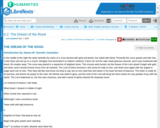
Full poem with brief introduction
- Subject:
- Language, Philosophy, and Culture
- Literature
- Material Type:
- Primary Source
- Author:
- James Garnett
- Date Added:
- 07/28/2021

Full poem with brief introduction
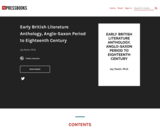
This is an open educational resource for teaching Early British Literature. All texts are in the public domain.
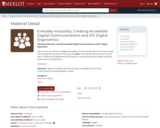
Everyday Inclusivity: Creating Accessible Digital Communications and DIY Digital Ergonomics
Learn how to use elements of Digital Accessibility, Universal Design (UD) and Universal Design for Learning (UDL) concepts to make your life easier in this special interactive lunch & Learn event. Professional Development and Education for Nursing Instructional Design Consultant (Instructional Learning Senior) Irene Knokh demonstrates how to get the most out of Windows and Microsoft accessibility tools to better engage and communicate with all your stakeholders. She shares her favorite tools, links for accessibility, and answers your questions about how to communicate clearer in daily emails and through Slack/Teams. This session will be closed-captioned.
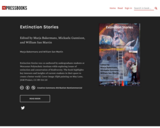
The causes and consequences of global biodiversity loss and species extinctions are complex and rapidly changing across spatial and temporal scales. They have both local and global manifestations and are entangled with biological, socio-cultural, economic, and political processes. Many of these challenges demand novel approaches, including innovative research and interdisciplinary analysis. They need new skills and methods from various disciplines and expert communities, including the humanities, social sciences, and biophysical sciences. They also require rethinking who conducts research and communicates findings and how knowledge is produced at the intersection of research and higher education institutions and social change.
This book aims to respond to these challenges. Extinction Stories was co-authored by undergraduate students at Worcester Polytechnic Institute, a private research university in Worcester, Massachusetts (USA), while exploring issues of extinction, environmental conservation, and biodiversity loss. The following twenty chapters combine the final projects conducted by students in the Great Problem Seminar (GPS) Extinctions course during the Fall of 2020 and the Biodiversity course in the Spring of 2021. Both courses took place while the world was still facing the impacts of the COVID-19 Pandemic—a global crisis that, as our current sixth mass extinction, is also profoundly rooted in long-lasting processes of habitat destruction and human-induced environmental change.
This text may also be accessed at extinctionstories.pressbooks.com/.
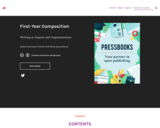
First-Year Composition is an open-source textbook designed to support the work of undergraduate writers enrolled in college composition courses. Although many of the topics addressed in the book are written with first- and second-year students in mind, the content remains relevant for writers at any stage of writerly development.
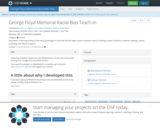
A learning module for import to LMS on the social psychology of stereotypes, racial bias, and biased policing. Also available as a standalone module on the Blackboard Coursesites platform.
From the assignment's preamble:
Largely because of the horrific videorecorded murder of George Floyd while under the restraint of four Minneapolis police officers, citizens around the world are feeling a renewed urgency to take action to recognize and act against racism. This Teach-In is designed to give you an opportunity to learn a bit more about the psychology of stereotyping, prejudice and discrimination, the racial inequities and inequalities that exist in society and in policing, your own biases, and about the societies and organizations working to remedy these inequalities and inequities.
Here is briefly what the Teach-In involves:
Reading: You will read part of a social psychology textbook on social categorization and stereotyping, and two relatively short and approachable academic journal articles.
Watching: You will watch several brief TED-type lecture talks about the topic, and a debate on the topic "Policing is Racially Biased," presenting informed arguments both in favor of that idea and against it.
Doing: You will experience how psychologists measure one aspect of bias -- implicit bias.
Writing: You will write two short reflection-style papers, and write journal entries about your feelings and experience.
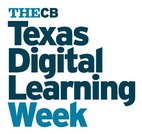
Recording from Texas Digital Learning Week.
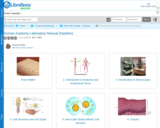
This text is disseminated via the Open Education Resource (OER) LibreTexts Project (https://LibreTexts.org) and like the hundreds of other texts available within this powerful platform, it is freely available for reading, printing and "consuming." Most, but not all, pages in the library have licenses that may allow individuals to make changes, save, and print this book. Carefully consult the applicable license(s) before pursuing such effects.
Instructors can adopt existing LibreTexts texts or Remix them to quickly build course-specific resources to meet the needs of their students. Unlike traditional textbooks, LibreTexts’ web based origins allow powerful integration of advanced features and new technologies to support learning.
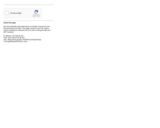
The Administrator Quick Start Guide seeks to support community college administrators in enabling the use of OER to address online learning on their campuses. The guidebook provides quick tips and starting points including:
A list of evidence-based practices and checklist considerations to support campus administrators in the transition to OER for online learning.
Resources to support campus leaders in impacting and developing OER policy supports, including example student government resolutions, district board resolutions, and academic senate resolutions.
Examples of how campus leaders and colleges across California have facilitated their transition to OER.
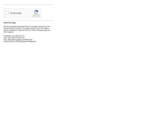
Practical strategies for using OER to build courses in Canvas, the learning management system used by community colleges across California
Examples of the ways that OER can be used to meet the requirements of quality online course design, and specifically in alignment with the statewide online course design rubric for California Community Colleges
Considerations for using OER to create more accessible, relatable learning experiences for students right from the start—including strategies for leveraging Universal Design for Learning, campus accessibility guidelines, and anti-racism frameworks in the development of OER
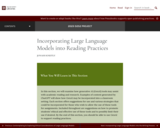
In this section, we will examine how generative AI (GenAI) tools may assist with academic reading and research. Examples of content generated by ChatGPT will show how GenAI may be incorporated into a classroom setting. Each section offers suggestions for use and various strategies that could be incorporated for those who wish to allow the use of these tools for assignments. Included throughout are suggestions on how to promote students’ ethical and effective use of these tools and to possibly limit their use if desired. By the end of this section, you should be able to use GenAI to support reading practices.
Author: Jonahs Kneitly
Contributors: Gwendolyn Inocencio, Mary Landry, C. Anneke Snyder
Designers: Irene AI, Sweta Kailani
Supervisors: Terri Pantuso, Sarah LeMire
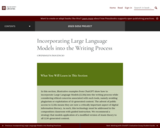
In this section, illustrative examples from ChatGPT show how to incorporate Large Language Models (LLMs) into the writing process while considering ethical concerns associated with such tools, namely avoiding plagiarism or exploitation of AI-generated content. The advent of public access to LLMs means they are now a critically important aspect of digital information literacy. As such, this technology must be addressed in the composition classroom with guided instruction. We recommend a strategy that models application of a modified version of stasis theory to all LLM-generated content.
After reading this section you should be prepared to teach stasis theory as a strategy for continual interrogation that helps rhetors discern whether generative-AI content exhibits appropriate depth, scope, and quality, along with the appropriate next steps in argumentation, writing, or research.
Author: Gwendolyn Inocencio
Contributors: C. Anneke Snyder, Mary Landry, Jonahs Kneitly
Designers: Irene AI, Shweta Kailani
Supervisors: Terri Pantuso, Sarah LeMire
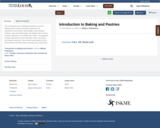
This introductory text on baking and pastries cover the following topics: baking and pastry equipment; dry ingredients; quick breads; yeast doughs; pastry doughs; custards; cake and buttercreams; pie doughs and ice cream; mousses, Bavarians, and souffle; and cookies. The appendix includes measurement and conversion charts, cake terms, and industry resources. This resource was written by Chef Tammy Rink for Nicholls State University CULA 250 course.
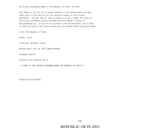
This is Benjamin Jowett's third edition (1888) of Plato's Republic. It includes all 10 chapters, margin numbers, and the translator's introductory material.
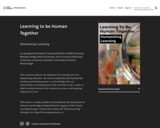
This resource explores the importance of, and processes for, humanizing education. We start by exploring what humanizing teaching and learning means: to acknowledge that our relationships are foundational to the work that we do. It aims to make learning inclusive with connection, access, and meaning-making at its core.
This material is not a book, nor a guide, nor a checklist–it’s an engagement with complex issues, with social entanglements, and with ways of doing (and not doing) things. This work also foregrounds the importance of twelve core super themes, such as trust, vulnerability, re-framing failure, and friction. These super themes are not discrete units or siloed entities, rather they are multi-layered ideas that intersect and weave together across the humanizing learning spectrum.
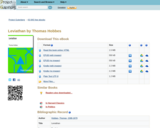
Thomas Hobbes's Leviathan is an important primary text. Hobbes's social contract theory relies on a thought experiment involving a hypothetical state of nature in which there are no rules or laws. He argues that life in the state of nature would be "solitary, poor, nasty, brutish, and short," and that accordingly we should renounce most of our rights and freedoms by giving them to a powerful sovereign, who will in turn protect us from foreign threat and from one another.
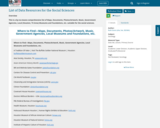
This is a by-no-means comprehensive list of Maps, Documents, Photos/Artwork, Music, Government Agencies, Local (Houston, TX Area) Museums and Foundations, etc. suitable for the social sciences.
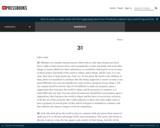
This is Chapter 5 on property rights from John Locke's Second Treatise on Government.
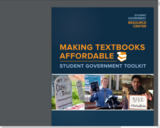
The high cost of textbooks has become a serious obstacle to the affordability
of a college education. The textbook market is rigged so that publishers can
generate huge profits and engage in bad practices at students’ expense.
Fortunately, we have solutions to this problem, most notably in the form of “open
textbooks”—high-quality books that are available online for free or for a very low cost
in print. With solutions like these, we can break the publishers’ stranglehold on the
market and help make higher education more accessible to everyone.
These changes won’t happen on their own—students will need to work for them. This
toolkit provides the resources that student governments and state student associations
need in order to bring open textbooks to their campuses and save students money
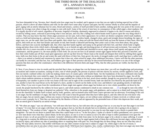
This is a link to Seneca's On Anger, which is Book 1, Chapter I-XXI of his minor dialogues. The complete file contains other books and chapters in Seneca's dialogues.